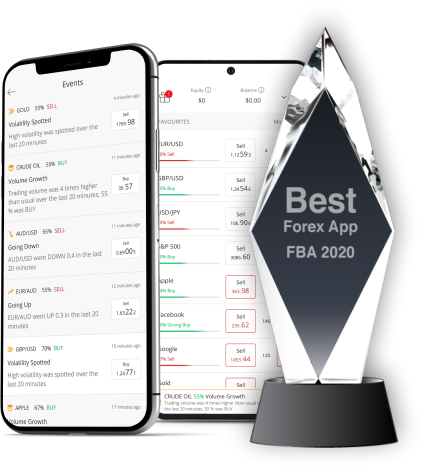
Treasury securities can be used to fund government operations, defense expenditure, or development projects. They are virtually guaranteed at maturity to pay their principal back, making them a safe and reliable investment. Additionally, they have a very high credit rating. There are two main methods to invest in Treasury bond. The first option is non-competitive, while the second is competitive bidding. The simplest way to purchase Treasury bonds is through non-competitive bidding. It involves placing an offer between the afternoon or evening of the auction. The non-competitive bidder guarantees that they will buy the bonds at the interest rate offered at the auction. A competitive bid, on the other hand allows investors to choose the interest rate they would like to pay and how much money they wish to invest. Depending on the bidder, the competitive bid may cover anywhere from one-half to three quarters of the issue.
The T-bond's maturity period is generally longer so investors can make more. The downside is that this increases the possibility of the bond's falling price. It is also important that you remember that bond prices are more volatile when interest rates rise. The bond's value will drop if interest rates rise. Similarly, when rates fall, the value of the bond will increase. This is why Treasury bonds are limited to $5 million.

It is important to remember that acceptance of competitive bids does not guarantee acceptance. The bid rejected if the yield specified by the bidder is greater than that set by the auction. The bid can be accepted if it is equal or lower to the auction's yield. In addition, competitive bids are usually made by corporations or individuals with a knowledge of the securities market.
BrokerTec's minimum trade size for new bonds is $1,000,000, and the average trade size for this bond is just over that. This could be due to the fact that the bond is new and there has been very little trading activity. The trade volumes are lower than those of other recently issued Treasury securities. This may be due to investors moving risk at higher costs.
With an estimated $24 Trillion in market value, the Treasury bond markets is the largest worldwide. In the last five years, this number has risen by more than $5 trillion. In response to this market increase, the Treasury Department requested primary dealers to purchase back bonds that were currently held on the balance sheets. To improve liquidity, these bonds can now be traded in the secondary exchange.

The Treasury has issued a fact sheet that highlights 12 key actions taken across the official sector. The Treasury has released a fact sheet that highlights 12 key actions taken in the official sector. These include the reopening the 20-year bond, weekly aggregate volume data and the reopening separate trading of registered interests and principal securities (STRIPS). The IAWG also released its second Staff Progress Report. The IAWG provided an overview of recent achievements as well as future work in the report. It also covered the latest achievements of the Treasury Market Resilience Project.
FAQ
Why is a stock called security.
Security refers to an investment instrument whose price is dependent on another company. It may be issued either by a corporation (e.g. stocks), government (e.g. bond), or any other entity (e.g. preferred stock). If the underlying asset loses its value, the issuer may promise to pay dividends to shareholders or repay creditors' debt obligations.
What's the difference between the stock market and the securities market?
The whole set of companies that trade shares on an exchange is called the securities market. This includes options, stocks, futures contracts and other financial instruments. Stock markets can be divided into two groups: primary or secondary. Stock markets are divided into two categories: primary and secondary. Secondary stock markets allow investors to trade privately on smaller exchanges. These include OTC Bulletin Board Over-the-Counter and Pink Sheets as well as the Nasdaq smallCap Market.
Stock markets are important as they allow people to trade shares of businesses and buy or sell them. The value of shares is determined by their trading price. New shares are issued to the public when a company goes public. These newly issued shares give investors dividends. Dividends can be described as payments made by corporations to shareholders.
Stock markets provide buyers and sellers with a platform, as well as being a means of corporate governance. The boards of directors overseeing management are elected by shareholders. Boards make sure managers follow ethical business practices. The government can replace a board that fails to fulfill this role if it is not performing.
How Do People Lose Money in the Stock Market?
The stock market is not a place where you make money by buying low and selling high. It's a place where you lose money by buying high and selling low.
The stock market is an arena for people who are willing to take on risks. They want to buy stocks at prices they think are too low and sell them when they think they are too high.
They hope to gain from the ups and downs of the market. But they need to be careful or they may lose all their investment.
Is stock marketable security a possibility?
Stock is an investment vehicle that allows investors to purchase shares of company stock to make money. This can be done through a brokerage firm that helps you buy stocks and bonds.
You could also choose to invest in individual stocks or mutual funds. In fact, there are more than 50,000 mutual fund options out there.
There is one major difference between the two: how you make money. Direct investment is where you receive income from dividends, while stock trading allows you to trade stocks and bonds for profit.
In both cases, ownership is purchased in a corporation or company. However, if you own a percentage of a company you are a shareholder. The company's earnings determine how much you get dividends.
Stock trading offers two options: you can short-sell (borrow) shares of stock to try and get a lower price or you can stay long-term with the shares in hopes that the value will increase.
There are three types for stock trades. They are called, put and exchange-traded. You can buy or sell stock at a specific price and within a certain time frame with call and put options. Exchange-traded funds are similar to mutual funds except that instead of owning individual securities, ETFs track a basket of stocks.
Stock trading is very popular as it allows investors to take part in the company's growth without being involved with day-to-day operations.
Although stock trading requires a lot of study and planning, it can provide great returns for those who do it well. You will need to know the basics of accounting, finance, and economics if you want to follow this career path.
What is security?
Security is an asset which generates income for its owners. The most common type of security is shares in companies.
Different types of securities can be issued by a company, including bonds, preferred stock, and common stock.
The earnings per shared (EPS) as well dividends paid determine the value of the share.
When you buy a share, you own part of the business and have a claim on future profits. If the company pays you a dividend, it will pay you money.
Your shares can be sold at any time.
What is the purpose of the Securities and Exchange Commission
SEC regulates the securities exchanges and broker-dealers as well as investment companies involved in the distribution securities. It enforces federal securities laws.
What is a bond?
A bond agreement between 2 parties that involves money changing hands in exchange for goods or service. It is also known to be a contract.
A bond is normally written on paper and signed by both the parties. The bond document will include details such as the date, amount due and interest rate.
When there are risks involved, like a company going bankrupt or a person breaking a promise, the bond is used.
Bonds can often be combined with other loans such as mortgages. This means that the borrower has to pay the loan back plus any interest.
Bonds can also be used to raise funds for large projects such as building roads, bridges and hospitals.
When a bond matures, it becomes due. The bond owner is entitled to the principal plus any interest.
If a bond isn't paid back, the lender will lose its money.
Statistics
- Even if you find talent for trading stocks, allocating more than 10% of your portfolio to an individual stock can expose your savings to too much volatility. (nerdwallet.com)
- "If all of your money's in one stock, you could potentially lose 50% of it overnight," Moore says. (nerdwallet.com)
- Ratchet down that 10% if you don't yet have a healthy emergency fund and 10% to 15% of your income funneled into a retirement savings account. (nerdwallet.com)
- For instance, an individual or entity that owns 100,000 shares of a company with one million outstanding shares would have a 10% ownership stake. (investopedia.com)
External Links
How To
How can I invest into bonds?
You will need to purchase a bond investment fund. While the interest rates are not high, they return your money at regular intervals. You make money over time by this method.
There are many ways to invest in bonds.
-
Directly buying individual bonds.
-
Buy shares from a bond-fund fund
-
Investing via a broker/bank
-
Investing through a financial institution
-
Investing with a pension plan
-
Directly invest through a stockbroker
-
Investing through a Mutual Fund
-
Investing via a unit trust
-
Investing through a life insurance policy.
-
Investing through a private equity fund.
-
Investing through an index-linked fund.
-
Investing via a hedge fund